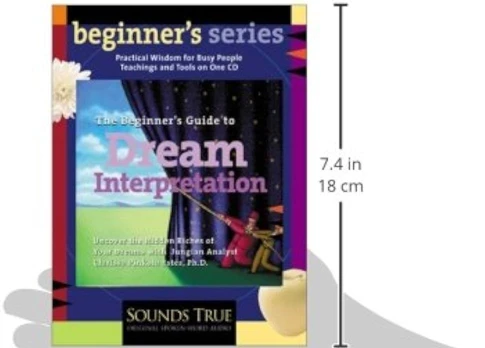Understanding the Significance of Recurring Dreams

Recurring dreams are dreams that repeat themselves with similar themes, settings, or events. These dreams can occur repeatedly over days, weeks, months, or even years. They often evoke a sense of familiarity and may leave you with a feeling of deja vu upon waking.
The underlying reasons for recurring dreams can vary from person to person. Some theories suggest that recurring dreams occur as a result of unresolved emotions, experiences, or conflicts in our waking lives. They may serve as a way for our subconscious minds to process and make sense of these unresolved issues. They can also be a reflection of routine and repetitive patterns in our daily lives. It is important to note that the significance of recurring dreams can differ for each individual. While some recurring dreams may hold deep symbolic meaning, others may simply be a result of our brain’s natural processing mechanisms during sleep.
What Are Recurring Dreams?
One possible explanation for recurring dreams is that they serve as a means of processing unresolved issues or emotions. These dreams may act as a symbolic representation of deeper psychological conflicts or unresolved trauma that is buried in our subconscious mind. By revisiting these dreams repeatedly, our mind may be attempting to bring these issues to our attention, urging us to confront and resolve them.
It’s important to note that recurring dreams are highly personal and their meaning can vary from person to person. While there are common themes and symbols that often appear in recurring dreams, such as falling, being chased, or teeth falling out, the interpretation ultimately depends on the individual’s unique experiences and circumstances. Understanding and interpreting the significance of recurring dreams can provide valuable insight into our inner selves and help us navigate our waking lives more consciously. To explore common themes and symbols in recurring dreams, check out this article on common themes in recurring dreams.
Why Do We Have Recurring Dreams?
Exploring Different Types of Recurring Dreams

Nightmare Repetitions: Nightmares are a common type of recurring dream that can be emotionally intense and vivid. They often recur when we are experiencing stress, anxiety, or trauma, and may be our mind’s way of processing and working through these challenging emotions. This type of recurring dream is worth exploring further to understand the underlying causes and find ways to alleviate the associated distress. If you are interested in learning more about how recurring dreams can assist in processing trauma, you can read about it here.
Recurring Flying Dreams: Flying dreams are often associated with feelings of liberation, freedom, and empowerment. When these dreams occur repeatedly, it may signify a desire for independence or a need to escape from certain limitations or constraints in our waking lives. Exploring the symbolism and emotions associated with recurring flying dreams can provide valuable insights into our personal aspirations and goals.
Lost in a Maze: Dreams of being lost in a maze or labyrinth can represent feelings of confusion, being uncertain of one’s path, or struggling to make decisions. When these dreams recur, it may indicate a need for clarity or a sense of direction in our lives. Exploring the maze symbolism and uncovering any recurring patterns or obstacles within the dream can help us navigate similar challenges in our waking life.
Understanding the different types of recurring dreams can be a helpful tool in understanding ourselves on a deeper level. By paying attention to the themes, emotions, and symbols present in these dreams, we can gain valuable insights into our subconscious mind and use that knowledge to make positive changes in our waking lives.
Nightmare Repetitions
The significance of nightmare repetitions varies from person to person and can be influenced by individual experiences and emotions. For some, these dreams may serve as a reflection of deep-seated fears or unresolved traumas. They can be a manifestation of anxiety or stress in our waking lives, acting as a way for our subconscious minds to process and confront these emotions. It is important to pay attention to the emotions and symbols present in these nightmares, as they can provide valuable insights into our own psychological states.
Understanding the meaning behind nightmare repetitions can be a complex task. While symbolism in dreams plays a significant role, it is also worth considering the scientific perspective. Studies in neuroscience have shed light on the function of recurring dreams, suggesting that they may serve as a mechanism for memory consolidation and emotional regulation during sleep. These dreams allow the brain to revisit and process emotional experiences, helping to integrate them into our long-term memory.
By exploring the symbolism and emotions associated with nightmare repetitions, as well as considering the insights from neuroscience, we can gain a deeper understanding of the significance these dreams hold in our lives.
Recurring Flying Dreams
Recurring flying dreams are a common and intriguing type of recurring dream. In these dreams, the dreamer is able to fly freely through the air, soaring high above the ground. Flying dreams can evoke a sense of freedom, exhilaration, and empowerment. They often leave a lasting impression on the dreamer, creating a sense of wonder and fascination.
The symbolism behind recurring flying dreams can vary depending on the individual and the context of the dream. Flying dreams are often associated with feelings of liberation, personal growth, and transcendence. They can represent a desire to rise above obstacles or escape from difficult situations in waking life. Flying dreams can also be a manifestation of the dreamer’s ambition, creativity, and desire for personal achievement.
From a psychological perspective, recurring flying dreams may reflect a sense of control and mastery over one’s emotions and life circumstances. They can symbolize a need for independence and a yearning for new experiences. Flying dreams can also be linked to feelings of empowerment and the courage to take risks and explore new possibilities.
It is important to recognize that the interpretation of recurring flying dreams can be highly subjective. The meanings behind these dreams can vary based on personal experiences, cultural influences, and individual beliefs. To gain a deeper understanding of the significance of recurring flying dreams, it can be helpful to keep a dream journal and explore the personal associations and emotions connected to these dreams. By analyzing recurring flying dreams in the broader context of one’s life, patterns and insights can emerge to shed light on their deeper meanings.
Lost in a Maze
One intriguing type of recurring dream is being lost in a maze. These dreams often evoke feelings of confusion, frustration, and helplessness. When you find yourself wandering through an intricate labyrinth, unable to find your way out, it may symbolize the challenges or obstacles you face in your waking life.
Being lost in a maze can represent a sense of being overwhelmed or directionless. It may reflect your struggle to make important decisions or find your true path. These dreams can also be a manifestation of anxiety or a fear of getting lost in the complexities of life.
Analyzing the meaning behind being lost in a maze requires considering the specific details and emotions associated with the dream. Are you alone in the maze, or are there others with you? Are you actively searching for an exit, or are you content with being lost? These subtle nuances can offer insight into your subconscious thoughts and emotions.
If you frequently have recurring dreams about being lost in a maze and want to delve deeper into their meaning, you might consider exploring the field of neuroscience and its connection to recurring dreams. Understanding how the brain processes dreams and the significance they hold can provide valuable insights into the underlying messages and symbolism within your dreams. Learn more about the neuroscience of recurring dreams here.
Common Themes and Symbols in Recurring Dreams

Water and Ocean Symbols
Water and ocean symbols are commonly found in recurring dreams and hold significant meaning. The presence of water in dreams often represents emotions, the subconscious mind, and the unknown depths of our psyche. It can signify our ability to navigate through different emotional states and adapt to change.
In recurring dreams, the ocean often represents the vast and mysterious aspects of our lives. It can be a symbol of the subconscious mind and the hidden depths of our emotions. The state of the ocean in our dreams, whether it be calm and serene or turbulent and stormy, can reflect our emotional state and the challenges we may be facing in our waking life.
Coastal landscapes: Dreams featuring coastal landscapes with ocean waves gently crashing on the shore can symbolize a sense of tranquility and emotional balance. It may represent a feeling of peace and harmony within oneself.
Drowning: On the other hand, dreams of drowning or being overwhelmed by water can reflect feelings of being overwhelmed by emotions or a particular situation in our waking life. It could indicate a need to confront and address these overwhelming emotions or circumstances.
Underwater exploration: Dreams of exploring the underwater world can signify a desire to explore the depths of our subconscious mind or uncover hidden aspects of ourselves. It may also represent a need for self-discovery and introspection.
It is important to consider the personal context and emotions associated with these water and ocean symbols in recurring dreams. The interpretation of these symbols may vary depending on the individual’s experiences and beliefs. Keeping a dream journal and reflecting on the emotions and events surrounding these dreams can provide valuable insights into their meaning and significance.
Test and Exam Anxiety
Test and exam anxiety recurring dreams can be a reflection of the pressure and stress that you may be experiencing in your waking life. They may signify your concerns about your ability to perform well, meet expectations, or achieve your goals. These dreams can also be a manifestation of your subconscious mind’s desire to excel and succeed academically.
To interpret the significance of test and exam anxiety recurring dreams, it is important to consider the context of your life and identify any underlying stressors or sources of pressure that may be contributing to these dreams. Ask yourself if there are any upcoming tests or exams, deadlines, or academic challenges that may be causing you stress. Additionally, reflect on your own beliefs and attitudes towards success and failure, as these can play a significant role in recurring dreams about test and exam anxiety. By examining these factors, you can gain a deeper understanding of the fears and anxieties that may be present in your waking life and work towards addressing them.
Teeth Falling Out
One common recurring dream theme that many people experience is the sensation of their teeth falling out. This dream can be incredibly vivid and unsettling, leaving a strong impression upon waking. The symbolic interpretation of teeth falling out in dreams can vary, but it often represents feelings of vulnerability, loss, or a lack of control.
In some cases, dreaming of teeth falling out may be associated with anxieties about one’s appearance or self-image. It could reflect a fear of aging or a concern about how others perceive us. Additionally, it may indicate a fear of losing power or influence in a particular aspect of life. The specific details of the dream, such as the condition of the teeth or the presence of pain, can also provide additional insights into its meaning.
It is important to remember that the interpretation of this dream theme can vary based on personal experiences and emotions. To gain a deeper understanding of the significance of your teeth falling out dream, consider reflecting on any recent life events, changes, or emotional states that could be connected to these feelings of vulnerability or loss.
By exploring the symbols and meanings associated with teeth falling out in dreams, you can begin to unravel the hidden messages and gain valuable insights into your subconscious mind. Remember, the interpretation of dreams is highly subjective, and it is crucial to consider personal context and emotions when deciphering their meanings.
Methods for Analyzing Recurring Dreams

When it comes to analyzing recurring dreams, there are several methods that can help unravel their meaning. By exploring these methods, you can gain insights into your subconscious mind and better understand the significance behind your recurring dreams.
1. Start a Dream Journal: Keeping a dream journal is a powerful tool for analyzing recurring dreams. Write down every detail you can remember about your dreams as soon as you wake up. Over time, patterns and common themes may emerge, providing clues about the meaning behind your recurring dreams.
2. Explore Personal Associations: Reflect on the symbols, emotions, and events in your dreams and consider what they might mean to you personally. Dreams are highly subjective and can have unique meanings based on individual experiences and associations. By examining your personal connections to the elements of your dreams, you can uncover their deeper significance.
3. Use Dream Interpretation Resources: There are countless resources available for dream interpretation, ranging from books to online platforms. These resources can provide guidance and offer different perspectives on the symbolic meanings of recurring dream elements. However, it is important to remember that these interpretations are not one-size-fits-all and should be used as a starting point for your own analysis.
By employing these methods, you can start to decode the hidden messages and symbolism within your recurring dreams. Remember that the interpretation of dreams is a deeply personal and subjective process. Trust your intuition and allow yourself to explore the various layers of meaning that your dreams may hold.
Start a Dream Journal
Be as descriptive as possible, using vivid language to depict the dream’s imagery. This will help you remember the dream more vividly and later analyze its symbolism. It’s important to record your dreams as soon as possible, as our memory of dreams fades quickly upon waking.
As you continue to journal your dreams over time, you may start to notice patterns or recurring themes that emerge. This can provide valuable insights into your subconscious mind and the issues you may be grappling with. Consider using bullet points or subheadings to categorize your dreams into different themes or symbols. This organizational approach will make it easier to identify connections and recurring elements in your dreams.
It’s worth noting that dream journaling requires consistency and commitment. Even if you don’t remember your dream every night, make a habit of recording any fragments or emotions that come to mind upon waking. These small details can provide valuable clues when analyzing your dreams later on. Lastly, remember that the interpretation of dreams is highly personal. Trust your intuition and allow yourself to explore various meanings and connections as you embark on this journey of self-discovery.
Explore Personal Associations
When trying to interpret the meaning behind your recurring dreams, exploring your personal associations is a crucial step. Our dreams are deeply influenced by our unique experiences, memories, and emotions. By examining these personal associations, you can gain a deeper understanding of the symbols and themes present in your dreams.
One way to explore personal associations is to reflect on the emotions that arise during your recurring dreams. Pay attention to how certain elements in the dream make you feel. For example, if you often dream about being chased, ask yourself what feelings of fear or anxiety this evokes in you. These emotions can provide valuable clues about what the recurring dream may be trying to convey.
Another approach is to analyze the specific symbols or events that appear in your dreams. Make a list of the recurring elements and consider what they mean to you personally. For instance, if you frequently dream about water, think about your personal associations with water. Is it a symbol of calmness and relaxation, or does it evoke feelings of fear or uncertainty? Understanding these personal connections can offer insights into the underlying messages of your recurring dreams.
Additionally, it can be helpful to keep a dream journal and record the details of each recurring dream. Take note of any patterns or changes in the dreams over time. This documentation can help you identify recurring themes or symbols, and you can also look back on your journal to detect any significant life events or emotions that coincide with the frequency of the dreams.
Exploring personal associations in your recurring dreams allows you to uncover the unique meanings they hold for you. By delving into your emotions, symbols, and personal history, you can unravel the messages that your subconscious mind is trying to convey. Remember, these interpretations are highly personalized, so trust your intuition and don’t be afraid to seek guidance from dream interpretation resources or professional therapists if needed.
Use Dream Interpretation Resources
When it comes to analyzing and interpreting recurring dreams, dream interpretation resources can be incredibly valuable tools. These resources can provide valuable insights into the meaning behind the symbols, themes, and events in your dreams. Here are a few options to consider:
1. Dream Interpretation Books: There are numerous books available that specialize in dream interpretation. These books often provide a comprehensive guide to understanding different symbols and themes commonly found in dreams. They can help you decipher the hidden meanings behind recurring elements in your dreams.
2. Online Dream Dictionaries: Online dream dictionaries are easily accessible and offer a wealth of information. These dictionaries allow you to search for specific elements or symbols in your dreams and provide interpretations based on popular theories and cultural beliefs. However, it is important to remember that dream interpretation is subjective, and the meanings provided by these resources may not necessarily resonate with your personal experiences and associations.
3. Professional Dream Interpreters: If you feel that your recurring dreams hold significant meaning and are seeking more personalized interpretation, consulting a professional dream interpreter could be beneficial. These individuals have expertise in analyzing dreams and can provide personalized insights based on your unique circumstances and background.
While dream interpretation resources can be helpful, it is important to approach them with an open mind and use them as tools for self-reflection and exploration rather than definitive answers. Remember that your dreams are deeply personal, and the meaning behind them may require a deeper understanding of your own emotions, experiences, and associations.
Interpreting the Meaning Behind Your Recurring Dreams
Interpreting the meaning behind your recurring dreams can provide valuable insights into your subconscious mind and allow you to gain a deeper understanding of yourself. Here are some effective methods to help you decode the messages hidden within your dreams:
- Looking for Patterns and Connections: Pay attention to recurring themes, symbols, or emotions present in your dreams. Keep a dream journal to track the patterns and connections between different dreams over time. This can help you identify common themes or symbols that may hold personal significance.
- Consider Personal Context and Emotions: Analyze your dreams in the context of your current life situation and emotional state. The events or symbols in your dreams may be representative of your subconscious thoughts, desires, fears, or unresolved issues. Consider how these elements relate to your waking life experiences.
- Explore Personal Associations: Reflect on the personal associations and meanings you have attached to certain symbols or themes in your dreams. Different individuals may interpret symbols differently based on their personal experiences, cultural backgrounds, and beliefs. Trust your intuition and explore what these symbols may represent to you personally.
- Use Dream Interpretation Resources: Utilize resources such as dream dictionaries, books, or online forums to explore different interpretations of symbols or themes in your dreams. While these resources can provide helpful insights, remember that the most accurate interpretations will come from your own intuition and personal associations.
By employing these methods, you can begin to unravel the meaning behind your recurring dreams and gain a deeper understanding of your subconscious mind. Remember, the interpretation of your dreams is a highly personal and subjective process, so trust your instincts and use these tools as guides along your journey of self-discovery.
Looking for Patterns and Connections
Consider Personal Context and Emotions
Conclusion
Frequently Asked Questions
What should I do if I keep having recurring dreams?
If you consistently have recurring dreams, it may be helpful to keep a dream journal. This will allow you to track and analyze patterns, symbols, and emotions associated with your dreams. Additionally, exploring personal associations and seeking resources such as dream interpretation books or websites can provide further insight.
Are recurring dreams always symbolic?
Not all recurring dreams are symbolic. Some may simply be a result of our brain processing information and emotions during sleep. However, many recurring dreams do contain symbolic elements that can provide valuable insights into our subconscious mind.
Can recurring dreams be influenced by external factors?
Yes, external factors such as stress, trauma, or significant life events can influence the occurrence of recurring dreams. These factors may intensify the themes or symbols present in the dreams.
Do recurring dreams have the same meaning for everyone?
No, the meaning of recurring dreams can vary from person to person. The symbols, themes, and emotions present in these dreams are deeply personal and can have different interpretations based on individual experiences and context.
Can recurring dreams be a sign of psychological issues?
Recurring dreams can sometimes be a reflection of unresolved psychological conflicts or issues. If you find that recurring dreams are causing distress or significantly impacting your daily life, it may be beneficial to seek professional help from a therapist or counselor.
Is lucid dreaming common in recurring dreams?
Lucid dreaming, which is the awareness that you are dreaming while still asleep, can occur in recurring dreams but is not necessarily common. Some individuals may develop the ability to become lucid within their recurring dreams, giving them the opportunity to actively explore and influence the dream’s outcomes.
Can recurring dreams have a positive meaning?
Yes, recurring dreams can have both positive and negative meanings. Some recurring dreams may reflect positive emotions, desires, or aspirations that you may have in your waking life. It is important to consider the overall context and symbolism of the dream to understand its significance.
Can recurring dreams help me gain insight into myself?
Absolutely! Recurring dreams can provide valuable insights into your subconscious mind and uncover aspects of yourself that you may not be fully aware of. By analyzing the patterns, symbols, and emotions in these dreams, you can gain a deeper understanding of your thoughts, feelings, and experiences.
Can recurring dreams be influenced by past traumas?
Yes, recurring dreams can sometimes be influenced by past traumas. They may serve as a way for your mind to process and integrate traumatic experiences. Exploring the role of recurring dreams in processing trauma can be a helpful step towards healing and resolution.
Can I control or change the outcome of a recurring dream?
With practice and lucid dreaming techniques, it is possible to gain some level of control over the outcome of recurring dreams. Lucid dreaming allows you to actively engage with the dream and make choices. However, it may require patience and dedicated effort to develop these skills.








